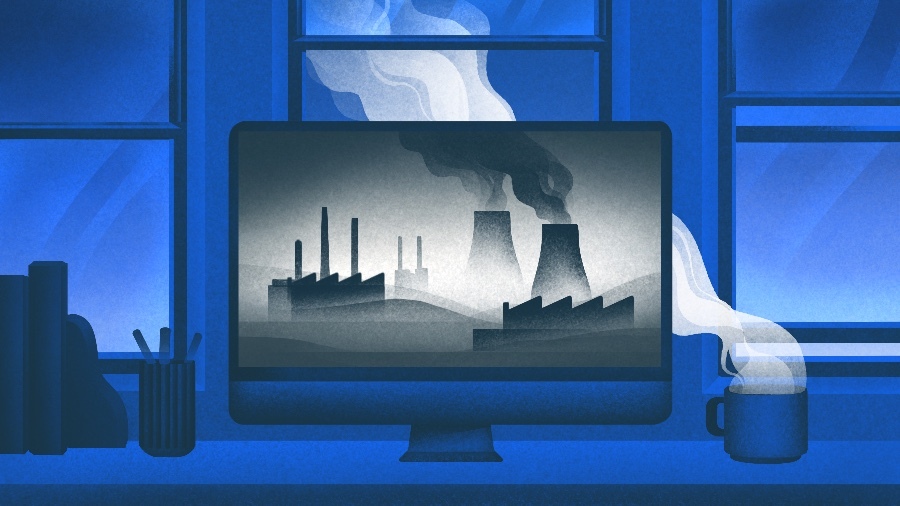Everyone is happier breathing fresh, clean air. Unfortunately, we often forget this until confronted with smoky, polluted air.
As Canadian wildfire smoke spread southward, North American population centers that historically haven’t suffered many dangerous air quality days got hit especially hard. Suddenly, millions are finding their thoughts turn to air purifiers and filtration systems.
It’s possible startups can play a helpful role here. While they haven’t figured out how to eliminate orange haze from our skylines, venture- and seed-backed companies are working on a number of devices and technologies that could make life a little more breathable.
Search less. Close more.
Grow your revenue with all-in-one prospecting solutions powered by the leader in private-company data.
From filters you wear in your nose to industrial carbon capture systems, startups focused on cleaner air have pulled in some big rounds over the past several years. Since air quality is on everyone’s mind lately, we decided to take a look at where the money is going.
Top startups tackling air quality
Using Crunchbase data, we compiled a sample set of companies funded in the past few years that have collectively raised over $1.2 billion to tackle air quality. Below are 22 that stood out:
Several of the most heavily funded companies above are working on carbon capture technologies which, while environmentally laudable, probably won’t have much impact on sporadic air pollution from wildfires. However, this category does include the top fundraiser, Zurich-based Climeworks, which has pulled in over $800 million for direct air capture.
Others are offering up products more targeted to people concerned with air quality in their immediate environs.
One example is San Francisco-based Aclima, which has raised $64 million to date for a hyperlocal air measurement and analytics platform that tracks pollution and greenhouse gasses. The company recently unveiled a partnership with Washington, D.C., to track air quality at the neighborhood block level.
Since most people spend the majority of time indoors, startups are also targeting these environments. Massachusetts-based enVerid, for instance, has pulled in over $38 million for ventilation products that improve indoor air quality.
Minnesota’s 75F, meanwhile, raised nearly $30 million for building automation tech that includes an air quality focus. And 10-year-old SafeTraces, of Pleasanton, California, has raised at least $18 million in known funding to date for technology that tracks whether filtration and ventilation systems are doing their job.
We’ve also previously looked at consumer-level technologies, including startups offering devices you wear on your nose to filter air. This includes London-based Be Nosy, a triangular air filter that seals around the nose, and Resprana, which offers in-nose air filters called Duo.
Big market, with exits too
Analysts project that global spending on air quality monitoring will trend upward for the next several years, and will likely surpass $7 billion by 2028. That’s a big enough number to support both startups and incumbents.
Investor enthusiasm over air quality-focused upstarts shares similarities with another uptrend we’ve seen in the venture space around weather. As we noted a few quarters ago, VCs have been pouring hundreds of millions into an assortment of companies focused on weather risk forecasting, analytics and related business models.
Overall, this is the opposite of a happy coincidence: Funding is happening because extreme weather events and air quality risks are on the rise.
In addition to venture capitalists, acquirers and public investors are also taking some interest in air quality-focused upstarts.
One of the more prominent exits in the past couple years was BreezeoMeter, an Israeli startup that provides street-level and real-time air quality information. It sold to Google last year in a deal reportedly valued around $250 million. Among other initiatives, the company offers a popular app that tracks air quality and pollens for one’s local area.
Then there’s Molekule, a seller of branded room air purification devices that previously raised nearly $120 million in venture funding. Molekule made it to the public market, but without a big return for investors. After closing a merger early this year with a publicly traded air hygiene provider, the combined company is valued at around $80 million.
No time to breathe easy about funding
It’s tough to say how the environment for air quality-focused startups will shape up over coming quarters. While startup investment is down sharply in 2023, climate has been one of the more resilient areas.
And, much as we’d prefer this not to be the case, air quality is a topic weighing on our minds a lot more than it used to.
Related Crunchbase Pro query
Illustration: Dom Guzman

Stay up to date with recent funding rounds, acquisitions, and more with the Crunchbase Daily.




![Illustration of a guy watering plants with a blocked hose - Global [Dom Guzman]](https://news.crunchbase.com/wp-content/uploads/quarterly-global-3-300x168.jpg)
67.1K Followers